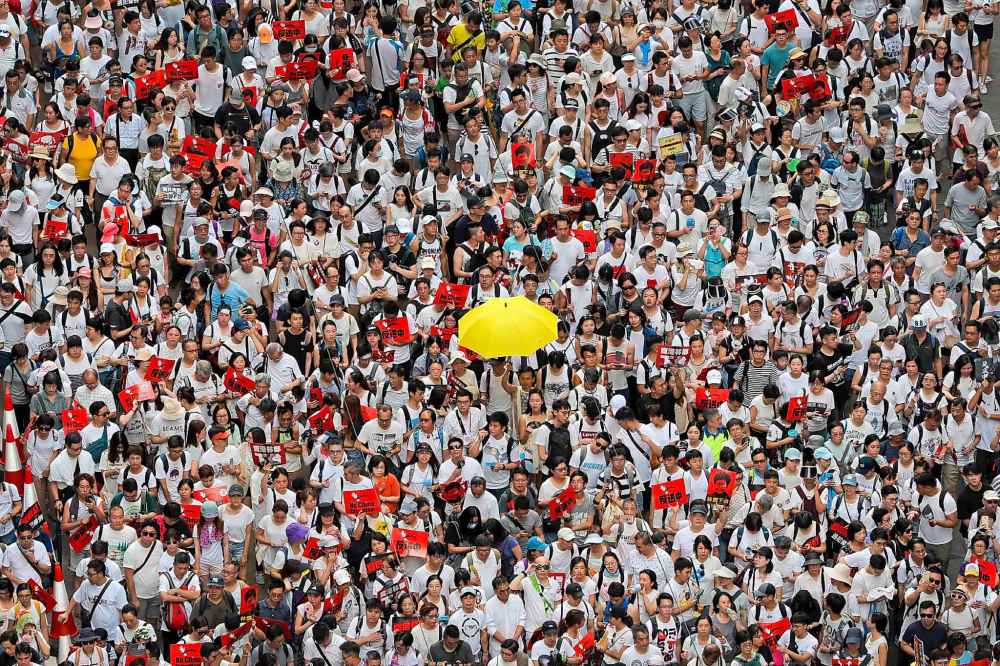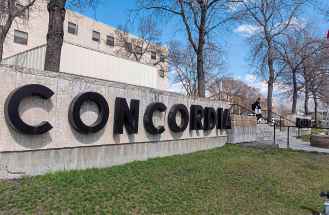Hong Kong shows Canada how to deal with China
Read this article for free:
or
Already have an account? Log in here »
To continue reading, please subscribe:
Monthly Digital Subscription
$0 for the first 4 weeks*
- Enjoy unlimited reading on winnipegfreepress.com
- Read the E-Edition, our digital replica newspaper
- Access News Break, our award-winning app
- Play interactive puzzles
*No charge for 4 weeks then price increases to the regular rate of $19.00 plus GST every four weeks. Offer available to new and qualified returning subscribers only. Cancel any time.
Monthly Digital Subscription
$4.75/week*
- Enjoy unlimited reading on winnipegfreepress.com
- Read the E-Edition, our digital replica newspaper
- Access News Break, our award-winning app
- Play interactive puzzles
*Billed as $19 plus GST every four weeks. Cancel any time.
To continue reading, please subscribe:
Add Free Press access to your Brandon Sun subscription for only an additional
$1 for the first 4 weeks*
*Your next subscription payment will increase by $1.00 and you will be charged $16.99 plus GST for four weeks. After four weeks, your payment will increase to $23.99 plus GST every four weeks.
Read unlimited articles for free today:
or
Already have an account? Log in here »
Hey there, time traveller!
This article was published 10/06/2019 (2378 days ago), so information in it may no longer be current.
The pro-democracy movement in Hong Kong, which seemed to be running out of steam, sprang back to life on the weekend when demonstrations against a proposed extradition law attracted a huge turnout. Reporters in the territory judged the numbers far exceeded those at similar demonstrations in recent years.

Canada nowadays is trying to figure out how to respond to Chinese bullying connected with the December arrest of Meng Wanzhou, a high-tech executive, at the request of the United States. China retaliated by imprisoning two Canadians and cutting off our canola shipments. Should we maintain a friendly tone and rely on sweet reason, or should we line up allies around the world and denounce China’s oppressive conduct? The Hong Kong demonstrations should encourage Canada to stand its ground and state its case forcefully.
People in Hong Kong are feeling increasing pressure from the Beijing government of mainland China to curtail legal rights and freedom of expression that they inherited from the former British colony when Chinese sovereignty was reasserted in 1997. The Hong Kong government seeks an extradition law because a man accused of murder in Taiwan is sheltering in Hong Kong, but the proposed extradition law would also allow the Beijing government to demand extradition of people it wants to put on trial in mainland courts.

Hong Kong people know where that leads. Chinese security agents in 2015 abducted employees of a Hong Kong bookstore that sells books critical of the Beijing government. Public confessions were extracted. The proposed extradition law might spare Chinese police the trouble of abducting their targets or luring them to the mainland. It would increase the pressure on Hong Kong publishers and booksellers to avoid annoying Beijing.
Canada has had no luck asking for quiet, polite conversations with the Beijing authorities either about the hostages they seized, Michael Kovrig and Michael Spavor, or about the canola, which the Chinese say was infested with vermin. Canada has a decent case to make that the two hostages are innocent men who should be released and that the canola is clean and should be accepted and paid for. The Chinese side, knowing this, refuses to schedule a meeting.
According to one theory of dealing with China, you must never make a fuss and never make the other side lose face. Just smile a lot and carry on as though nothing untoward has happened; then one day, for no particular reason, maybe they’ll give you what you want.
Canada has had no luck asking for quiet, polite conversations with the Beijing authorities either about the hostages they seized or about the canola
Canada has been playing it this way for six months with no visible result. Beijing’s ambassador in Ottawa, who directed a stream of angry remarks at Canada, was rewarded with re-posting to Paris. The people in the streets of Hong Kong, who may know more about China than the Canadian government does, seem to think vehement protest is a more promising avenue.
Canada should use its worldwide network of embassies to publicize China’s unreasonable and oppressive conduct toward its Canadian hostages and toward Canadian canola. It should publicize the lenient terms of Meng’s detention in Vancouver, where she is living at home, and Canada’s careful compliance with the Canada-U.S. extradition treaty. It should invite other governments to agree that the hostages should be released, the canola trade should resume and the Meng extradition case should be pursued to its conclusion before a Canadian court free of political influence.








